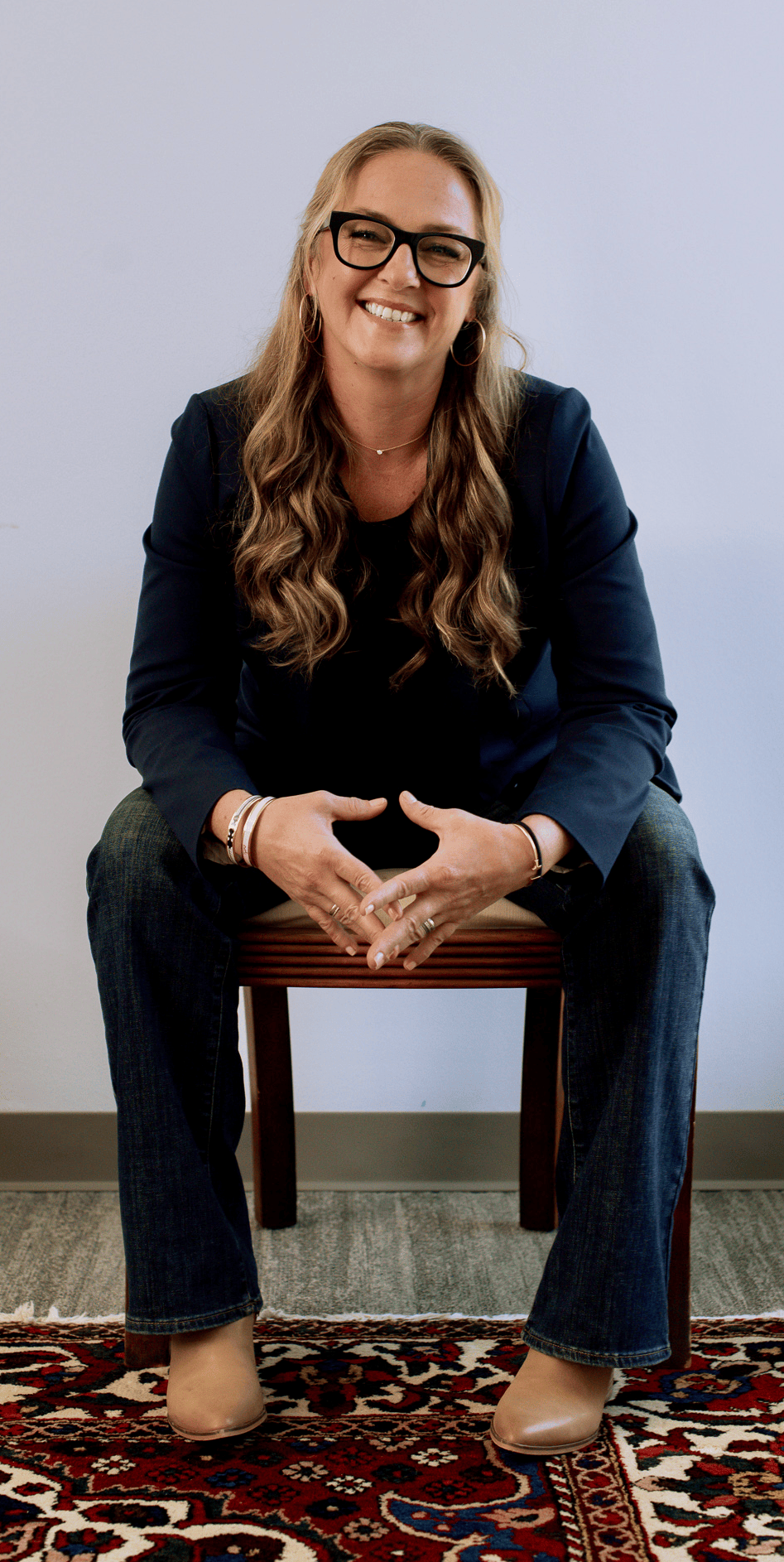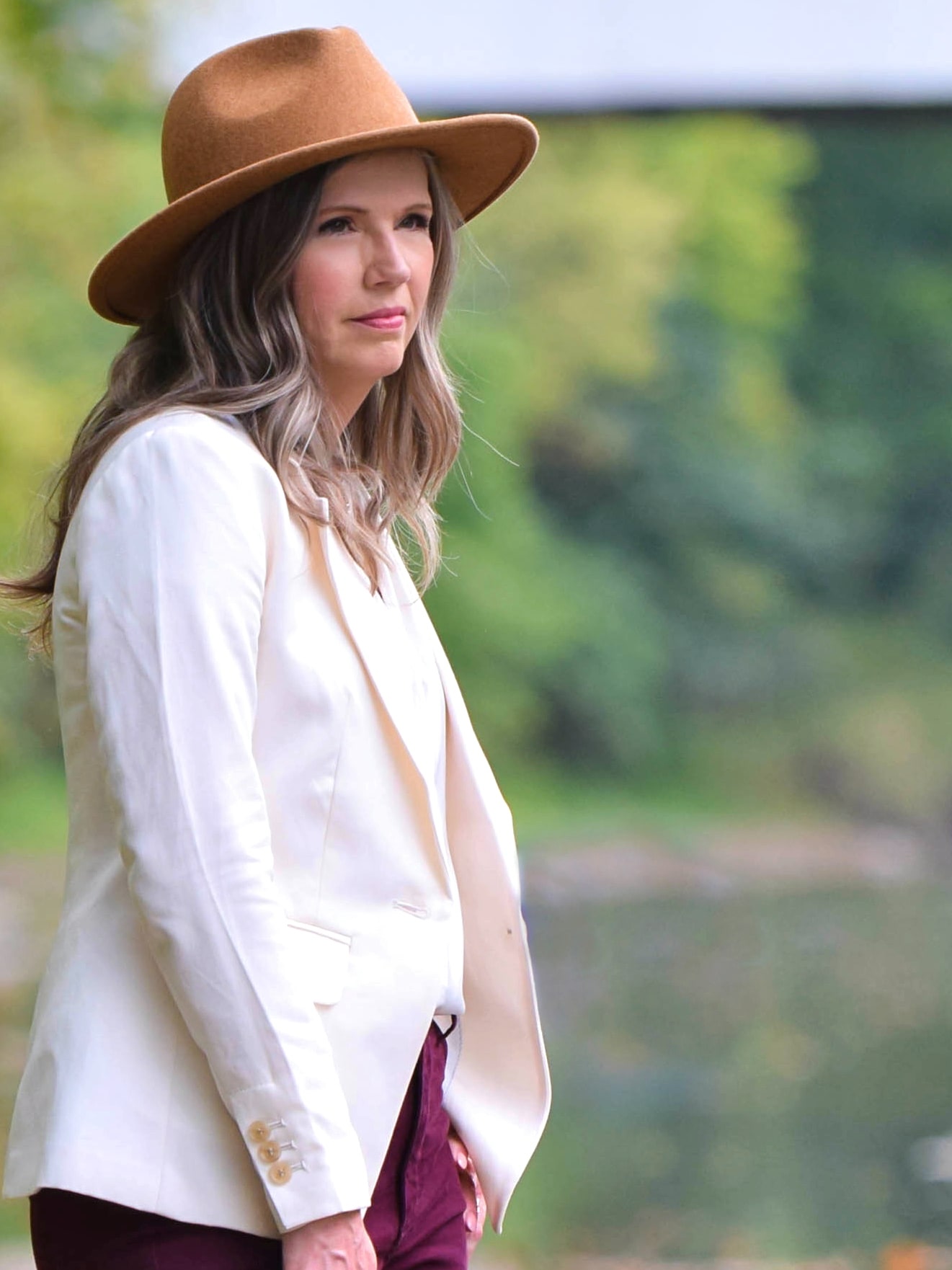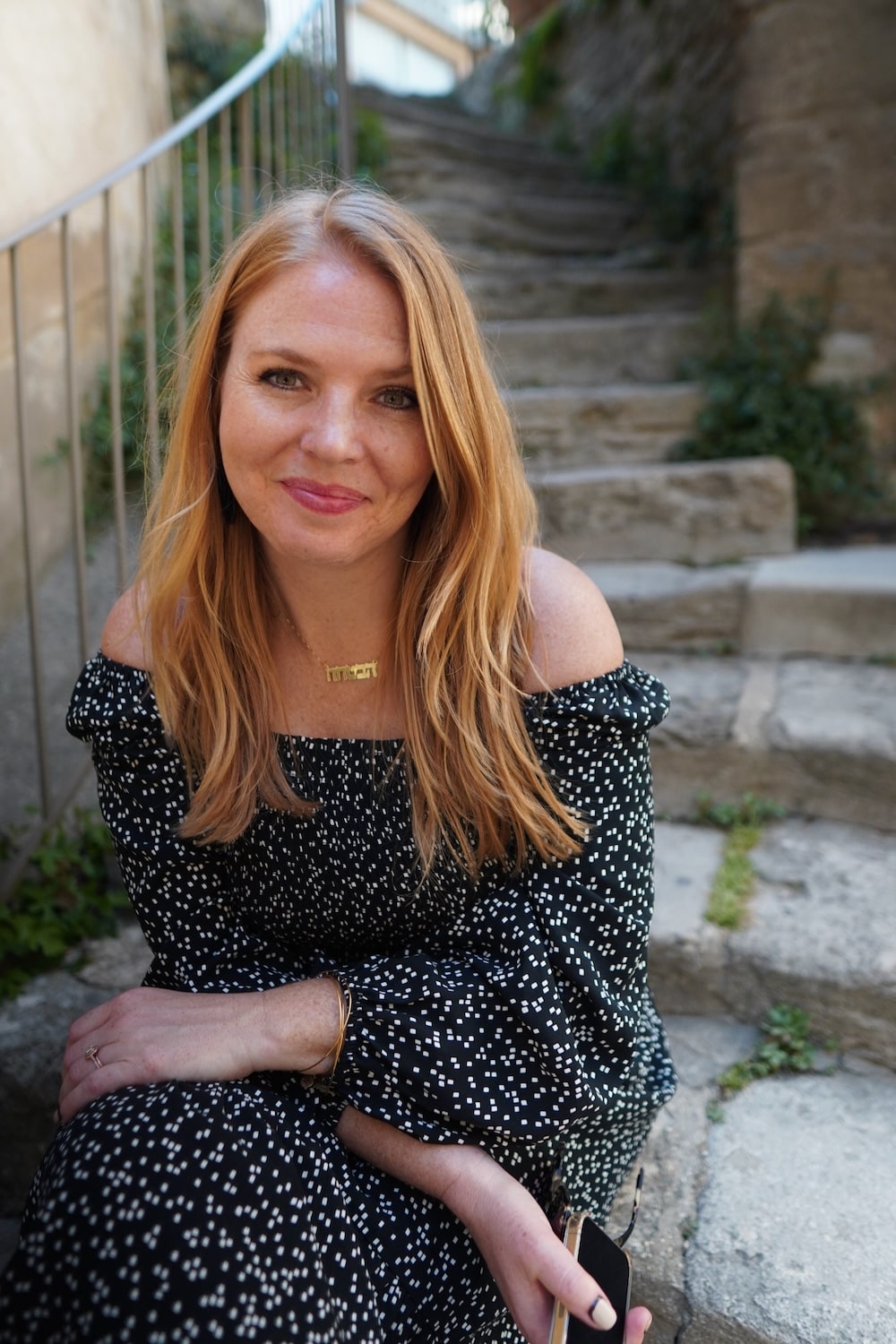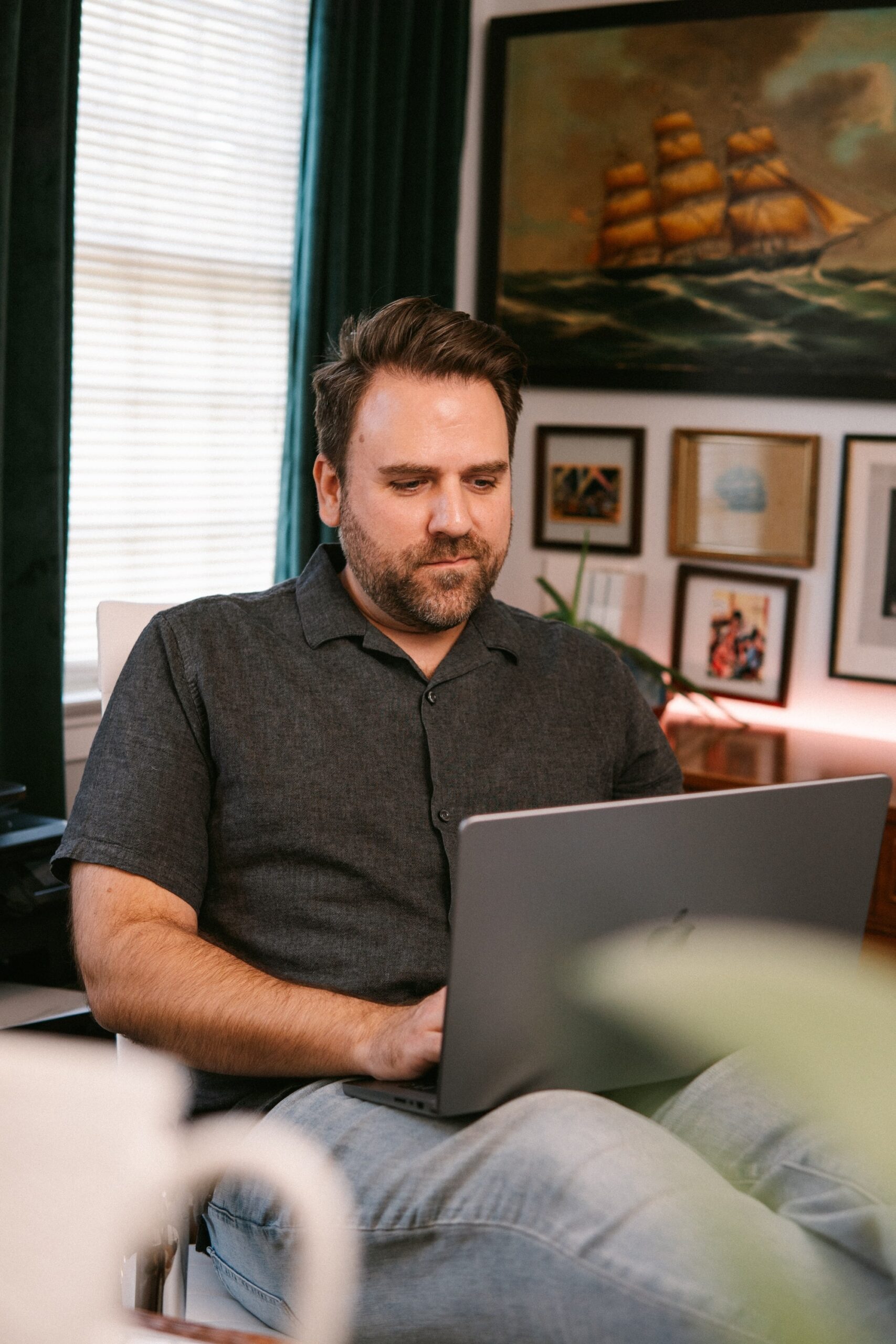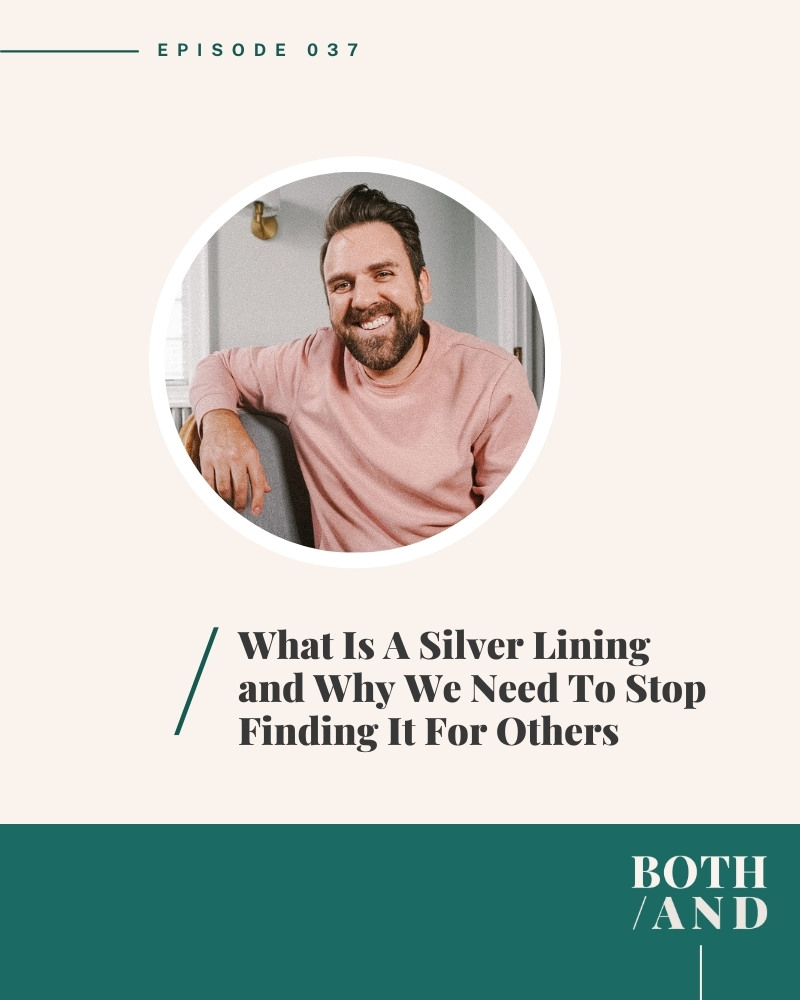
READY TO START A PODCAST? (SAY YES!) Buzzsprout is hands down the easiest and best way to launch, promote, and track your podcast. Click here to get a $20 Amazon gift card if you sign up for a paid plan.
I would imagine you’ve heard the phrase “silver lining” before. It’s often presented as a question, “What’s the silver lining?” Or worse, it’s used to soothe others: “The silver lining in this is…” At its core, it means to see the glimmer of hope and optimism during a difficult situation. The idea is solid. Find the good and speak it. See the glimmer of hope shining forth through a dark night. As a personal practice, I’m behind finding the silver lining. As an attempt to soothe others, I now see it’s not helpful.
I got curious and wanted to know where the phrase originated in its current form. John Milton wrote a poem way back in 1634 and coined the phrase.
In the poem, he took the idea of a night cloud backlit by the moon, casting a silver edge along the cloud, and compared it to hope. I’ve seen this before, and I find the imagery beautiful. I can think of walking along a beach at night and seeing the clouds expand out over the ocean, with only the moon to light them up. A few dark clouds with a silvery edge are peeking through. It looks both eerie and beautiful.
There was no silver lining to infertility.
When my wife and I were first trying to start a family, there was so much excitement. There was hope and positivity. Dreams about little kids running around. Discussions of names and personalities. It was our little secret, as it usually is. No one knew we were trying, and no one needed to know. My wife would get pregnant, and we’d get to announce our little bundle of joy to the world.
Month after month of negative news, the sky went from bright and sunny to cloudy and gray. Slowly our big blue sky was cluttered with rain clouds. Each month brought a new cloud. Each month, the sky got a little darker, and so did our optimism.
The day we decided to pursue medical intervention via a fertility clinic was the first day it rained (metaphorically). I wanted to start a family in the same way others did. I didn’t want shots, bright lights, and sterile rooms. I didn’t want the expense and the impersonal approach that comes with a journey of infertility.
Month after month. Procedure after procedure. Disappointment after disappointment. Our dream of a little family felt farther away. By now, my sky was only storm clouds. The sun was setting, and grief hid the moon behind many clouds.
Months became years and a lot of tears. Finally, we decided that a very personal journey needed to become public. We needed our friend’s and family’s support because the grief was becoming too much for our hearts to hold alone.
We also were tired of the insensitive comments from people. Words like, “You know how sex works, right?” or “Nice to meet you, do you kids yet? What are you waiting for?” By taking our story public, we wanted to help raise awareness around infertility and remove the stigma, disrespect, and insensitivity. And I’d say we did. In our community of influence, it worked.
But what came in its place, from some, was the silver lining. In other words, they were trying to find our silver lining. But what that experience taught me is finding someone else’s silver lining isn’t helpful, and there is something better you can do. The comments attempted to find what was optimistic about our situation. People inserted themselves into our process and tried to manipulate hope. Those words – manipulate hope – might feel dramatic, but that is what it feels like in the middle of grief.
When someone would say something positive to me, even as simple as, “Don’t lose hope, good things are coming your way.” I learned to respond, “I can’t carry the hope for us right now. I can’t see good in this situation, so if you want to carry that for us, please do. But don’t ask me to do that.”
I learned three important lessons about silver linings from our ongoing season of grief and one new strategy for what to do instead.
Silver Linings are Personal.
First, this experience taught me that silver linings are personal. In the middle of difficult seasons – grief, trauma, tragedy, sadness – it’s essential to allow people the space to process in the very personal ways they need. Finding their silver lining becomes an unwelcomed injection into a personal process.
When someone tried to find my silver lining, it felt like salt on a wound and not the comfort I know they want to give. The way we all grieve is personal to us as individuals, and when you’re in the middle of a hard season, you are often using so much of your energy to survive, and when you can, you have hope and optimism, but when you can’t, that’s okay too. So there has to be space for people to grieve and hope, but on their terms and in their unique ways.
Silver linings look different for everyone.
Second, silver linings aren’t always silver to someone else. What someone views as positive or hopeful in a situation might be drastically different than someone else. If you think of the literal meaning behind silver lining – an actual line of light shining through the edge of a cloud – you know that your location on earth determines whether you see it or not.
It’s the same with silver linings in this psychological way. You may see a silver lining that the person in grief cant see, but it’s because you’re standing somewhere else. You’re not in their shoes. You’re not standing where they are. And so, to the person you share your silver lining with, it can feel like you don’t see them at all. It can make someone feel more isolated and alone because your interjection of optimism is so far from their reality that you no longer become a safe person. From the perspective of the person in grief, you’ve shown that you don’t understand or empathize with their situation.
I often found that if I shared my grief with someone during our infertility journey, and they responded by finding a silver lining, I shut down. I felt unknown. I felt unheard. I felt dismissed. And I believe it comes back to this idea of silver linings looking different to everyone, based on where you’re standing.
Silver linings aren’t genuine empathy.
Third, silver linings are not the same as empathy and do not serve the same purpose in any way. Empathy is the ability to understand and share someone else’s feelings. To understand what someone else feels, you have to place yourself in their experience. You have to step into what they are going through and not experience it how you would see it, but experience it how they would. Sharing or carrying someone else’s feelings is messy. It’s hard work. It’s not easy.
It’s much simpler to share a silver lining from your perspective than it is to share someone’s grief. It’s easier to find optimism than carry sadness. It’s simpler to soothe with unimpactful words than soothe with empathy.
A silver lining wants to bypass empathy and jump straight to the end of grief (as if there is an end.) It wants to shut down negative, difficult, hard feelings and bypass the process of processing. Silver linings are so easy. They’re a copout. Let’s call them what they are. They are not empathetic or understanding. And we need to stop finding other people’s silver linings.
Find your silver lining.
A lot of this conversation may seem like I’m against silver linings, but as I mentioned back in the beginning, I’m good with silver linings, as long as I’m the one to find it in my life. Learning to see the good in situations, acknowledge the progress, manufacture hope, choose better thoughts are all practices that I believe and find value in, when appropriate.
When I was going through grief, however, the one thing that I didn’t know was that it’s okay to go through grief. It’s okay to be sad. It’s okay if I can’t choose joy. It’s okay if all I see are storm clouds, and I can’t see a silver lining.
I learned how to embrace ALL that life is – both the good and the bad – to live a more fulfilling life. (It isn’t a coincidence that I changed the focus and name of my podcast to BOTH/AND, on the tail end of the most painful, grief-filled journey in my life.)
A different strategy.
So if we need to stop finding other people’s silver linings, what do we do instead? It’s simple, but not easy. We hold hope for them. We hold joy for them. We hold peace for them. We hold everything they can’t hold for themselves, and we tell them.
We say, “I know you can’t see hope in this situation, so I going to hold onto it for you. I’m going to stand with you, in grief. I’m going to lock arms with you. I’m going to stand under these rain clouds with you for as long as you need. And I want you to know that while you use your energy to survive, I’ll use mine to hope. I will keep hope and believe in good things for you, so that you can focus on getting through. While you grieve, I’ll hold your heart and your deepest desires, so that you have one less thing to carry.”
What Is A Silver Lining and Why We Need To Stop Finding It For Others
Whether through speaking, storytelling, or coaching, I share real experiences, learned and curated wisdom, and practical tools to help you (and humanity) move forward.
I'm a motivational speaker, talk show host, writer, and creative. And I'm a endlessly curious human trying to figure out, well… humans. What makes us successful, fulfilled, disappointed, or stuck? How do our experiences shape us? And more importantly—how do we human better?
If we haven’t met yet, I’m Gentry Lusby.
meet
the
blogger
